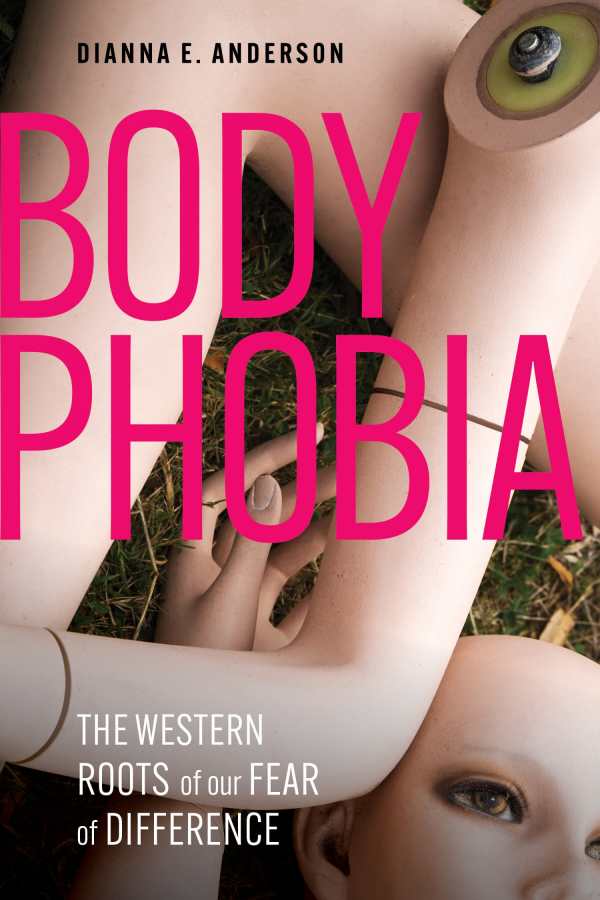Body Phobia
The Western Roots of Our Fear of Difference
Dianna E. Anderson’s Body Phobia is a convincing personal and philosophical exposé of how a culture that fears bodily differences harms vulnerable people.
Anderson, who is nonbinary, trans, and queer, grew up in an evangelical community. The Christian mind-body dualism, they assert, promulgates the belief that “our flesh simply does not matter” or is inferior to the spiritual realm, a belief that discounts how size, disability, race, and gender affect people’s everyday lives. Instead of encouraging empathy, dualistic worldviews are said to promote an ironic obsession with narrow sexual morality.
Several categories of difference are considered in turn, and Anderson has personal experience with most. They were fat-shamed by doctors who ignored their sleep apnea. Their eldest brother, who has Down syndrome, was lucky not to have been born in a previous decade. Gender dysphoria was a long-term source of anxiety for them. But care is also taken to make this an intersectional study: Anderson takes into account the treatment of Black bodies and how people are devalued when equated with their economic labor.
Anderson emphasizes the term “bodyminds” to reflect the indivisibility of the physical and the human consciousness that inhabits it. The text’s argument extends to the fear of aging and death. When their mother died with dementia and amyloidosis in 2014, Anderson avoided looking at her dead body and recoiled from her coldness. Other cultures offer better models for relating to the dead, they suggest, from Judaism’s sitting shiva to an Indigenous Indonesian practice of keeping a corpse at home until the funeral.
Weaving together history, current events, and personal stories, the theological inquiry Body Phobia confronts unhelpful doctrines to issue a beautiful affirmation: “Your body is you, it is yours, it will change, and it will die. And all of that is okay.”
Reviewed by
Rebecca Foster
Disclosure: This article is not an endorsement, but a review. The publisher of this book provided free copies of the book to have their book reviewed by a professional reviewer. No fee was paid by the publisher for this review. Foreword Reviews only recommends books that we love. Foreword Magazine, Inc. is disclosing this in accordance with the Federal Trade Commission’s 16 CFR, Part 255.

